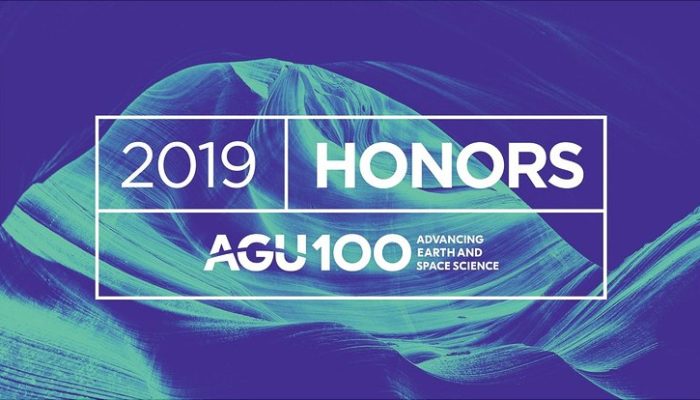
Before pursuing a scientific career, Melinda studied economics and worked in the field for several years. Her scientific career took place until now in Hamburg, Germany, where she completed both her undergraduate and graduate studies in meteorology. Melinda finished her PhD in 2018 under the supervision of Valerio Lucarini, studying extreme events in chaotic atmospheric models. She received the 2019 Donald L. Turcotte Award from the Nonliniear Geophysics section of the AGU for her PhD thesis. Her research focuses on understanding high dimensional chaotic dynamical systems, like the atmosphere, and includes the study of extreme values, large deviations, and instabilities in these systems. She is currently a postdoctoral researcher at the Meteorological Institute of the University of Hamburg working on instabilities in chaotic systems by using covariant Lyapunov vectors.
So, Melinda congratulations for the award. Did you expect it?
I knew that my PhD supervisor, Valerio Lucarini, nominated me for the award, but I did not expect to actually receive it… Well, to be honest, there was of course a tiny little hope deep inside me, but I was still very surprised and very happy when the notification came from the AGU.
The award is assigned to an early-career or postdoctoral scientist in recognition of outstanding dissertation research that contributes directly to nonlinear geophysics. How important is nonlinear geophysics in your professional life?
I am a person who always seeks to answer the “why” question when studying something, and I think that nonlinear geophysics helps a lot to answer this question if the object to be studied is a geophysical system. Nonlinearity is a basic property of complex geophysical systems like the atmosphere or the climate. Thus nonlinear geophysics is indispensable for studying and understanding these systems, and I am driven by the need to understand them. So, nonlinear geophysics is essential in my professional life.
Why is your work important for the nonlinear geophysics?
My PhD work is a contribution to the study of extreme events in nonlinear, chaotic atmospheric systems. I study these events and the related systems not only from a geophysical point of view, but based on methods of dynamical systems theory and statistical mechanics. Thus I obtain valuable information about both, the extremes and the dynamical properties of the system producing these extremes. An important part of my study is the applicability of basic limit laws of Extreme Value Theory and Large Deviation Theory in chaotic dynamical systems. In my thesis I point out the advantages of using these powerful methods, but I also specify their drawbacks in case of applications to geophysical data. These limit laws have a certain predictive power in a statistical sense, and they reveal universal properties of extreme events and large deviations that help us understand the system itself. However, to apply them in a rigorous way one has to reach asymptotic levels, involving that one looses information related to persistence, which is of course counterproductive if one is interested in studying persistent extreme events, for example. Nonetheless, I also show that we can still analyze persistent events based on these limit laws by constructing adequate observables.
Which benefits will you receive from the AGU?
In addition to the award certificate I will receive a monetary price of 200 $. I am also invited to present a talk on my dissertation topic at the AGU Fall Meeting in December 2019 in San Francisco.
Are there key people you would like to thank?
Yes, of course. I would like to thank to my PhD supervisor, Valerio Lucarini, not only for nominating me for the award, but also for his support during and after my PhD. This dissertation would not have been possible without him. I am also thankful to my co-supervisor Christian Franzke and to my co-authors, Tamas Bodai and Jeroen Wouters, for sharing their expert knowledge with me and for their guidance in the world of scientific research.
What do you wish for the future of this field?
A basic characteristic of nonlinear geophysics/geosciences is multidisciplinarity, and the interaction between its subfields plays a crucial role for its future development. Furthermore this field offers essential contributions to fundamental geoscience research, making the interaction between nonlinear geophysics and other geoscience fields also extremely important. I wish that in the future there is an intensification of co-operations between subfields of nonlinear geophysics, and I also hope for a strengthening and spreading of the connections with other geoscience fields. So that nonlinear geophysics continues to develop new methodologies, new modelling and data analysis techniques, but also distributes its groundbreaking findings, and makes them available for relevant applications.
